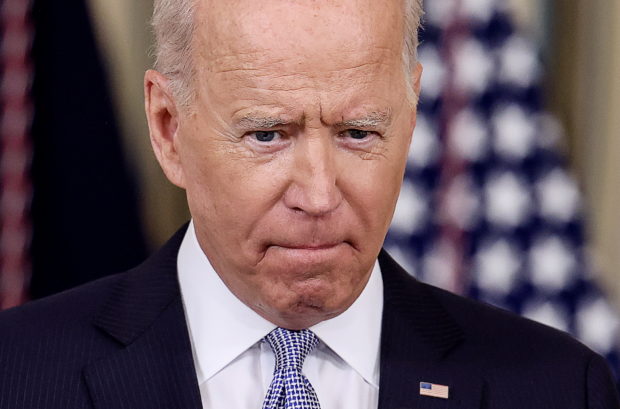
U.S. President Joe Biden speaks about coronavirus disease (COVID-19) vaccines and booster shots in the State Dining Room at the White House in Washington, U.S., September 24, 2021. REUTERS/Evelyn Hockstein
WASHINGTON — President Joe Biden’s administration will work to avoid blocking requests for former President Donald Trump’s records in an investigation into the deadly Jan. 6 attack on the U.S. Capitol, the White House said on Friday.
“The president has already concluded that it would not be appropriate to assert executive privilege,” said White House press secretary Jen Psaki. “And so, we will respond promptly to these questions as they arise.”
Psaki said requests from the U.S. House of Representatives Select Committee investigating the Capitol attack would be reviewed with “an eye to not asserting executive privilege,” a legal principle that allows the president to shield some confidential information.
An administration official later said questions of executive privilege would be evaluated on “a case-by-case basis, as Jen noted.”
A mob of Trump supporters stormed the Capitol on Jan. 6 as Congress was meeting to certify Democrat Biden’s election victory, delaying that process for several hours as then-Vice President Mike Pence, members of Congress, staff and journalists fled from rioters.
The House committee has subpoenaed four members of Trump’s administration, including Mark Meadows and Steve Bannon, the panel’s chairman said on Thursday.
Trump said he would fight the subpoenas and records request using executive privilege and other grounds. A spokesman for the Republican ex-president said on Friday the committee has put forth an overly broad request for records that lacks legal precedent.
“Executive privilege will be defended,” said Taylor Budowich, a spokesperson for Trump’s Save America political action committee.
Executive privilege allows the White House to refuse demands for records such as congressional subpoenas. The legal principle is rooted in the idea that some privacy should be given to presidential advisers so they can have candid discussions.